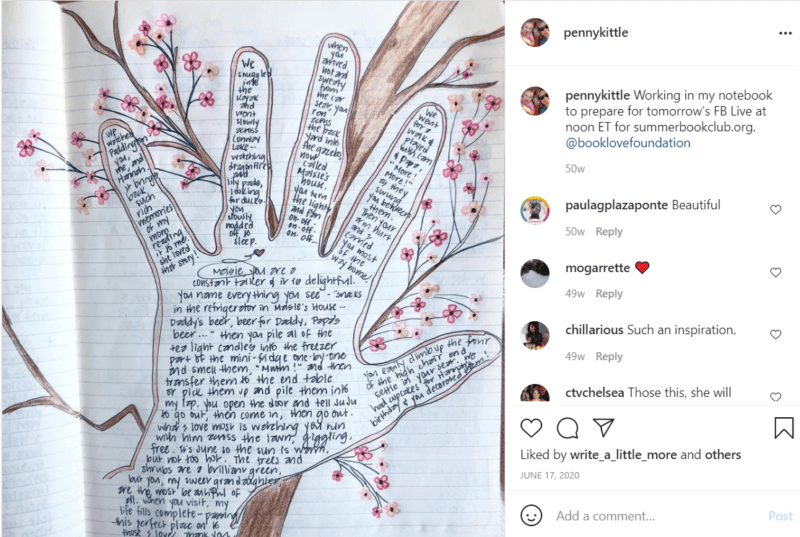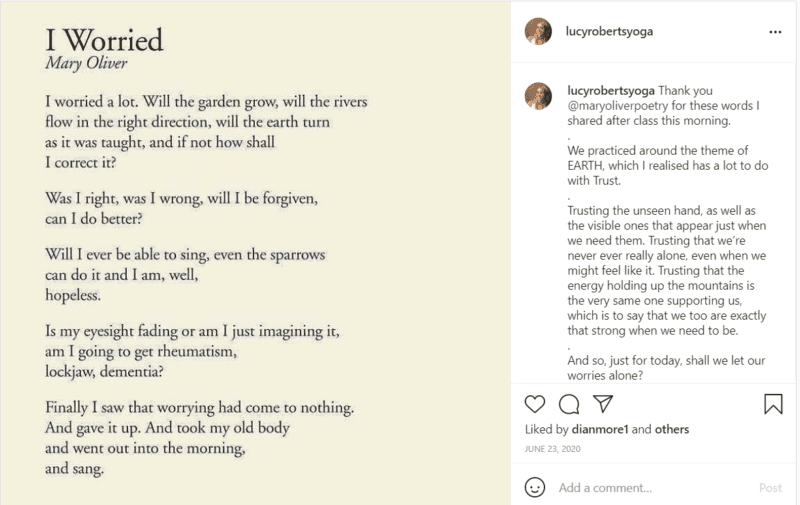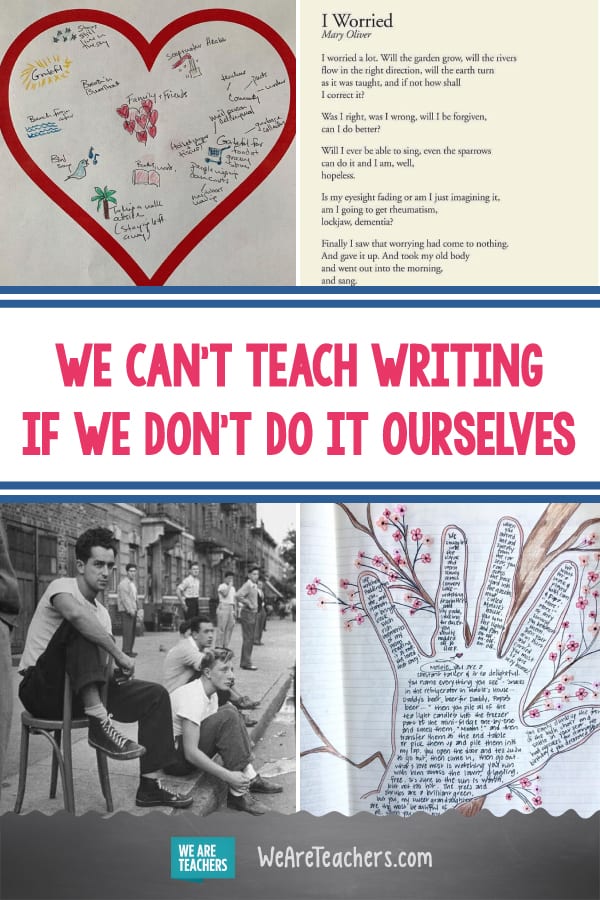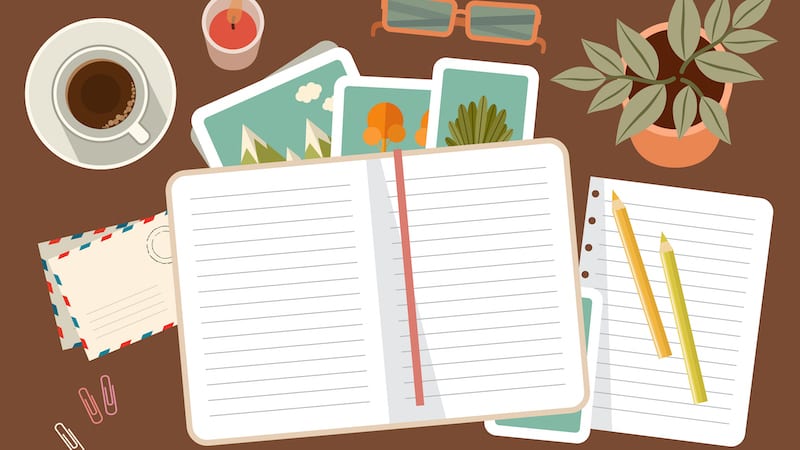You must do the writing you ask of your students. It’s nothing new, but did you know it’s the single most effective way to get kids writing? If you take the time to do the following five writing assignments, you’ll start to see why finishing this work has a big payoff for teaching it. Bonus points for keeping a notebook about any thoughts and feelings you have while creating these writing examples because you probably won’t remember when you get in front of your students!
Without further ado, here are writing prompts for teachers that you can try now so you have examples to share next year:
1. Share your heart
I first learned this from poet Georgia Heard, but I’ve seen many writing teachers share it. Draw a heart, then write all the things you love inside. Use this heart throughout the year to remind you of writing topics or to help you go deeper when you can’t get enough words on the paper.

Source: @heartmaps
2. Trace your hand and write
Similar to the heart map, writers trace their hand and then write about things they touched that day. This is an exercise writing teachers can do once a month or more since there are so many things to discover inside this five-fingered structure. You’ll find that once your hand starts writing along the fingers, you’ll want to move onto a bigger sheet of paper to keep it going.

Source: @pennykittle
3. Write a story from a photo
Find a photo with a person or several people in it. It can be one of you or it can be one with strangers. Set it down in front of you and write the story of the photo from the perspective of one of the subjects who were photographed. Get inside the head of that person and write everything you can think about that moment in time. Use all of your senses to bring the scene to life.
Teaching tip: If you do this with kids, display the same photo for the entire class to see. Have them each write their own stories to show how differently one scene can be portrayed.

Source: @old_photos
4. Write beside a poem
Choose a poem you enjoy reading. If you don’t read poetry very much, google poems by Mary Oliver or Billy Collins who write very accessible poetry for everyone. Re-write the poem on one side of a piece of paper. Draw a line down the middle of the paper. Then, write your thoughts or your own poem on the other side of the paper. Don’t be afraid you’ll do it wrong. There is no right or wrong, this is for you. Use this risk-taking assignment to talk with your students later about how you felt while you wrote.

Source: @lucyrobertsyoga
Once you’re done with each of the assignments, put them in a folder or in a notebook to use with your students. When kids see that you’ve done the work you’re asking of them, they will trust you more. They will trust that the process is considered valuable. You may also find you are better able to navigate their journey. Consider how many times you questioned yourself. Think about what problems you had to solve to get yourself to complete the activities. This thought process and experience (especially if you share it out loud) will help your students solve their own writing problems as they creep up.
Do you make different writing samples to share with your students? We’d love to hear about what you do in our WeAreTeachers HELPLINE group on Facebook.
Plus, How I Use Vignettes to Jumpstart Students’ Narrative Writing .



